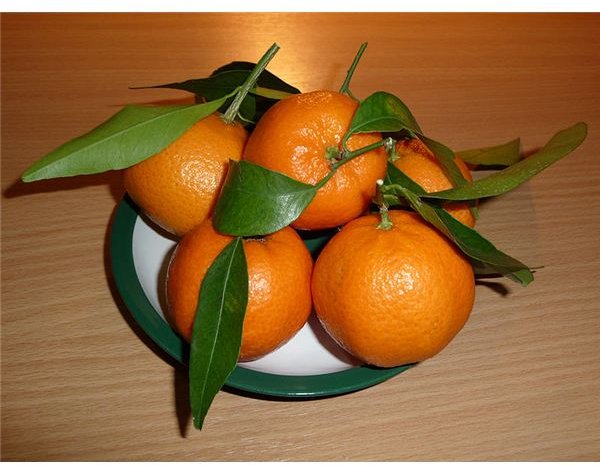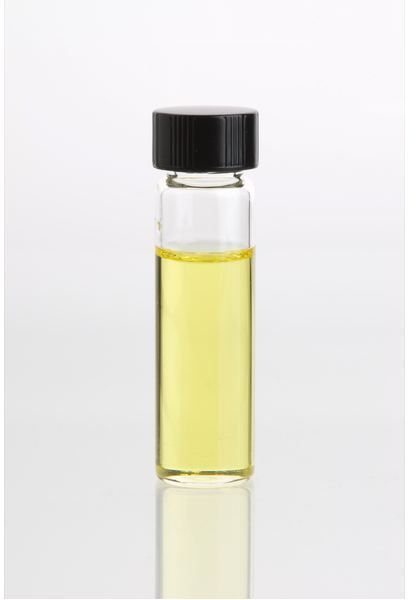Mandarin Essential Oil: Uses, Properties & Facts
History & Processing
Mandarin essential oil comes from the fruit of the tree Citrus reticulata. The tree stays small, reaching up to 25 feet high, and has glossy, broad evergreen leaves. A native to China, the fruit tree reportedly received its name for the mandarin people and first appeared in Europe around 1805. The oil has a history of use in perfume as a middle to top note, colognes, cosmetics, soaps, and alternative remedies. You can also find it in sweets, carbonated beverages, liquor, gum and ice cream as a flavoring agent. Mandarin oil comes from the outer rind of the fruit. The rind is cold pressed for extraction of the oils, except for mandarin pettigrain oil, in which case the leaves and twigs are steam distilled.
Properties

Mandarin has a citrus scent similar to the fruit, but also contains a floral aroma and warmth. The oil looks golden in color, with some variations. Mandarin oil contains many healing properties and classifies as antispasmodic, antiseptic, diuretic, laxative, digestive and lymphatic stimulant, carminative and sedative. Many of the properties are mild. In blends, mandarin oil works well with many floral scents, such as rose, jasmine, chamomile, and geranium, other citrus oils including grapefruit and lemon, spicy scents like clove and black pepper, and some stronger oils, such as sandalwood and patchouli.
Uses

Mandarin oil has use in aromatherapy, topical products and internal medicine. Well-known for gently treating digestive problems while promoting calmness, it makes a good remedy for the elderly and for children. Some of the effects of mandarin on digestion may be improved when blended with other citrus oils. The numerous conditions the oil treats and its uses include:
- nausea
- insomnia
- nervousness
- anxiety
- skin conditions, including acne, oily skin, scars and stretch marks
- constipation, indigestion and intestinal upset
- liver problems
- tonic
- stress associated problems
- fluid retention
Risks
Mandarin essential oil appears safe and non-toxic, even for use during pregnancy, for children, elderly and for those with diseases. The only known risk associated with the oil is potential photo toxicity. As a precaution, avoid sun exposure when using mandarin oil as it can increase the risk of sun damage to the skin. Although mandarin is considered safe, as with all essential oils, it is best to speak to a knowledgeable health care professional before use and to read the disclaimer for alternative remedies.
References
“The Complete Book of Essential Oils & Aromatherapy”; Valeria Ann Worwood
Purdue University Extension: Mandarin Orange
https://www.hort.purdue.edu/newcrop/morton/mandarin_orange.html
Aurora Health Care: Aromatherapy and the Art and Science of Using Essential Oils
https://www.aurorahealthcare.org/services/compmedicine/art/aromatherapy.pdf
Essential Oil Dictionary: Mandarin
https://www.deancoleman.com/essentialref.htm#mandarin
Images from Wikimedia Commons
Image1: Allen Timothy Chang
Image2: George Chernilevsky
Image3: Itineranttrader
